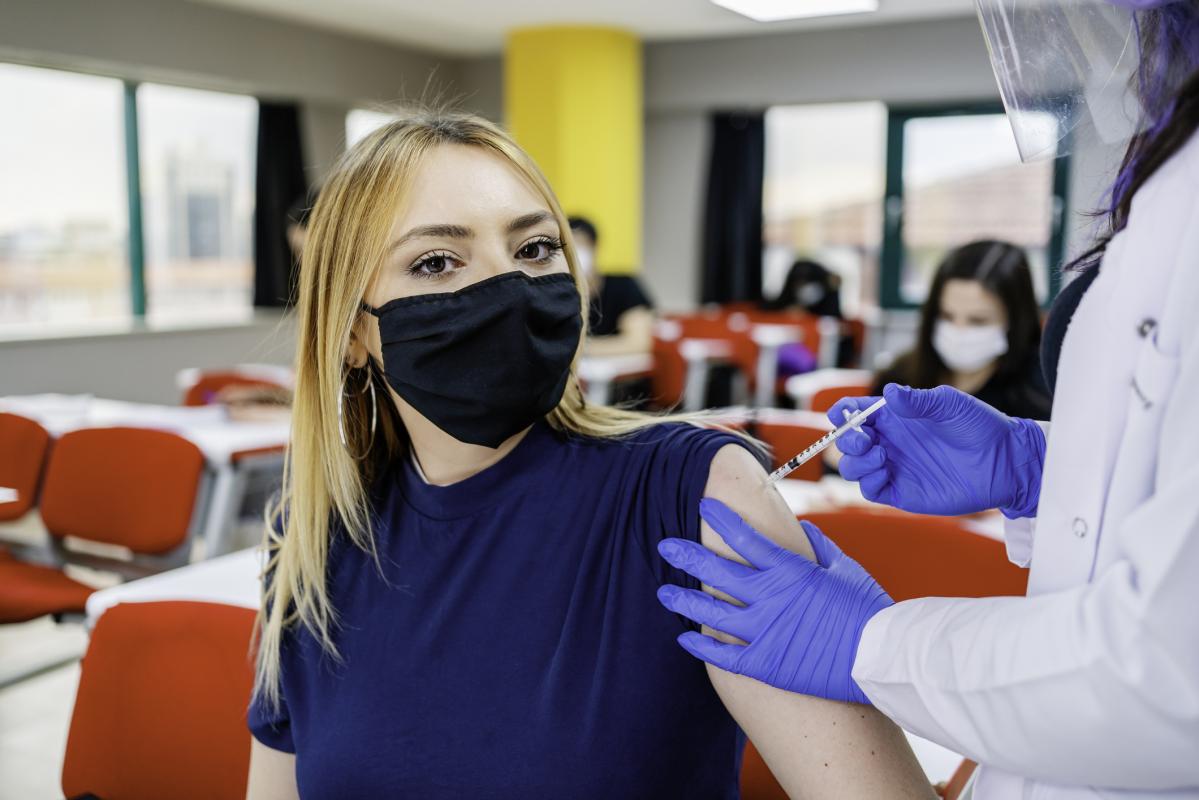
Heads were turning on campuses across the country this spring, as students and community members spotted the hot new thing launching seemingly overnight. It was the kind of place to be seen, but not in the traditional collegiate sense. To many, signs for COVID-19 vaccination clinics represented a light at the end of the long, dark pandemic tunnel.
“We’re finally making some headway,” thought Autumn Spyhalsky, a student at the University at Buffalo, as she passed the busy campus clinic parking lot. About to enter her third year in the School of Pharmacy and Pharmaceutical Sciences, she had already been vaccinated at the pharmacy where she worked, as had many of her program peers.
And when New York governor Andrew Cuomo announced that SUNY campuses, including UB, would mandate COVID-19 vaccinations for any student to attend in-person classes this fall, Spyhalsky felt encouraged. “In the circle of people I surround myself with, it’s very exciting,” she says.
Most Popular
That is a popular sentiment. In a new Student Voice survey, conducted by Inside Higher Ed and College Pulse and presented by Kaplan, 69 percent of college students expressed that they support (somewhat or strongly) COVID vaccine requirements for in-person learners this fall. And 85 percent of respondents had either gotten at least one dose of the COVID vaccine or planned to when the five-day survey of 2,002 students closed on May 2.
While more U.S. colleges and universities announce such mandates just about daily, and the American College Health Association officially supports this new vaccine requirement (with exceptions for certain individuals), leaders at some institutions have decided they won’t follow suit.
“We will not require the vaccine,” says Marlene Tromp, president of Boise State University. “That’s partly because in Idaho, the thinking is very libertarian. No one wants to be told what to do.” Even at the peak of the pandemic, she adds, staff would hear a plea during campus tours to allow individual choice on the vaccine, including from out-of-state prospects.
The Student Voice survey asked the 15 percent of respondents who had not been vaccinated and do not plan to get the shot what they would do if their college or university required it. Four in 10 said they would probably or definitely leave the institution.
Does that mean a mass exodus can be expected at campuses with a mandate? Tromp suspects not. “It’s one thing to say you’ll leave on a survey, but it’s another thing to leave your friends. It’s possible more would leave than predicted, but people develop an affinity for their campuses,” she points out.
In the survey, financial aid status did not seem to impact students’ reactions about whether they would stay or leave if the vaccine were required -- one indication that wanting to leave and actually being able to do so do not match up.
At Boise State, the vast majority of faculty have already gotten vaccinated for COVID, and Tromp says the plan is to make it very easy for students to make that choice.
EdSights, which uses AI-powered chat bots to help higher ed institutions improve retention, has collected a lot of data on the daily life of more than 200,000 students at its client institutions, including vaccination information. Co-founder Carolina Recchi says the top two reasons students are unsure about or unwilling to get a jab are a lack of knowledge about side effects or long-term effects (particularly fertility concerns) and a worry that the vaccine side effects will be just as bad as COVID-19. Other common reasons include an underlying condition, recently having had the virus, “My parents don’t want me to,” a fear of needles, inconvenience and that (yes) “I’m not a liberal”/“I’m not a communist.”
Besides encouraging vaccinations by offering campus clinics, Tromp has been thinking about how rural communities are using the influence of family doctors to help increase vaccination rates and how that tactic might apply to campuses. “Maybe faculty could speak to students in their major to say, ‘I got it, here’s what the science shows, I didn’t just do it for me, I did it for my community,’” she says. “It’s surprising how little it takes to overcome vaccine hesitancy.”
Scroll down for a visual look at how college students are feeling about the COVID-19 vaccine and how their higher ed institutions are approaching vaccine communication and policy.
"about" - Google News
June 07, 2021 at 02:00PM
https://ift.tt/3ioKXzM
Infographic: What students really think about the COVID vaccine - Inside Higher Ed
"about" - Google News
https://ift.tt/2MjBJUT
Bagikan Berita Ini














0 Response to "Infographic: What students really think about the COVID vaccine - Inside Higher Ed"
Post a Comment